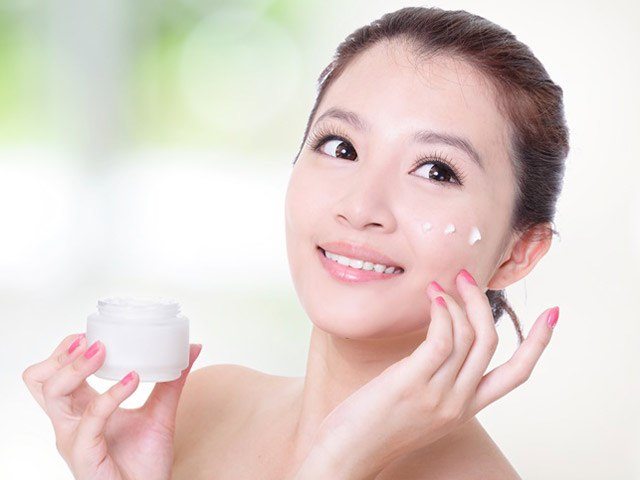Skincare That Adapts: Smart Ingredients for Changing Skin
The days of using the same skincare routine year-round—or even long-term—are over. Our skin is constantly evolving, influenced by age, hormones, climate, stress, and environment. What your skin needs in summer is different from winter, just as oily teenage skin has vastly different concerns than maturing skin in your thirties or forties. This has led to a surge in demand for skincare that adapts, powered by intelligent, responsive ingredients that adjust to the skin’s unique and ever-changing needs. From lightweight gels to deeply nourishing face creams, these new innovations mark a smarter, more intuitive approach to skincare.
The Rise of Adaptive Skincare
Adaptive skincare is built on the concept of personalization and real-time response. Instead of static formulations, these products are designed to deliver what the skin needs—when it needs it. At the core are smart ingredients: compounds that can sense skin conditions like pH, oil production, moisture levels, and inflammation, then respond accordingly.
For instance, adaptive moisturizers can hydrate dry patches without overwhelming oilier areas, while some active ingredients now feature time-release or condition-sensitive delivery systems. These high-tech formulations are especially helpful for people with combination skin or those who experience frequent skin changes due to travel, hormonal shifts, or environmental stressors.
Intelligent Ingredients That Read Your Skin
Several next-generation ingredients are now being used in adaptive skincare. These aren’t just “good for your skin”—they actively respond to its needs.
1. Encapsulated Retinol
This version of retinol is stabilized in tiny spheres that dissolve slowly over time or in response to your skin's temperature or pH. It means less irritation and more effective results. As your skin tolerates more, these smart carriers deliver the right dose without overwhelming your barrier.
2. Niacinamide
Already a favorite for its versatility, niacinamide works on multiple skin concerns at once—like dullness, large pores, and uneven tone. It helps balance oil production while boosting hydration, making it especially useful for fluctuating skin types.
3. Adaptogenic Botanicals
Ingredients like ashwagandha, holy basil, and reishi mushroom adapt to stress levels, both in the body and on the skin. These adaptogens reduce inflammation and oxidative stress, which are common culprits in aging and breakouts.
4. Multi-Weight Hyaluronic Acid
Instead of a one-size-fits-all approach, adaptive skincare uses hyaluronic acid in various molecular sizes. The smaller molecules penetrate deeply to hydrate within, while larger molecules create a moisture-sealing barrier on the surface.
5. Microbiome Balancers
Prebiotics, probiotics, and postbiotics help your skin maintain a healthy microbiome. An adaptive formula will regulate these ingredients based on your skin’s microbiome state, keeping it calm, balanced, and resilient over time.
Climate and Season-Responsive Formulas
Seasonal changes affect skin health dramatically. In winter, lower humidity and indoor heating sap the skin of moisture. In summer, sweat and sun exposure may increase oiliness, clogged pores, and UV damage. This is where adaptive skincare really proves its worth.
Smart moisturizers now contain phase-shifting ingredients that thicken or thin out based on temperature. For instance, certain oils or waxes melt at skin temperature but solidify in cold weather, providing better protection when needed. Similarly, some serums increase antioxidant release in high UV conditions, acting like a backup sun shield.
By integrating environment-sensing ingredients, brands are giving skincare an upgrade. Products don’t just sit on your skin—they react, change texture, and deliver actives in response to your surroundings. It’s like a thermostat for your face.
Hormonal Skin and Adaptive Solutions
Puberty, pregnancy, menstruation, and menopause—each stage of life brings hormonal fluctuations that directly impact the skin. Breakouts, redness, dryness, and sensitivity are all common symptoms.
Adaptive skincare helps navigate these shifts with smart actives that stabilize oil production and strengthen the skin barrier. Salicylic acid, when micro-dosed, can unclog pores during high-oil phases, while ceramides and peptides reinforce the skin when it’s more prone to dryness and thinning.
Furthermore, AI-driven skincare devices and apps now recommend adaptive product use based on hormonal tracking. By syncing skincare to your cycle or hormonal health, it becomes proactive, not just reactive.
The Future of Personalized Skin Tech
Smart ingredients are just the start. The next generation of adaptive skincare is already fusing with technology—think wearable sensors that monitor skin hydration or UV exposure, syncing in real-time with your skincare products.
Some brands are experimenting with AI-based diagnostic tools that assess your skin through photos and recommend adaptive formulations on the spot. These tools learn over time, making suggestions based not only on current skin needs but also predictive models of how your skin is likely to change due to weather, stress, or diet.
Smart packaging is also emerging, with bottles that change color when it’s time to reapply sunscreen or moisturizers. The future isn’t just about ingredients—it’s about responsive ecosystems that make skincare intuitive and hyper-personalized.
Conclusion: Smarter Skincare for Smarter Self-Care
Skincare that adapts is no longer a futuristic idea—it’s already transforming how we care for our skin. These smart ingredients and technologies allow us to move away from generic routines and into customized, dynamic care that keeps up with life’s changes.
Whether your skin is shifting with the seasons, stress, hormones, or age, adaptive skincare is a powerful tool that helps you stay balanced and radiant. By investing in formulations that evolve with you, you’re not just treating your skin—you’re future-proofing it.


Comments
Post a Comment